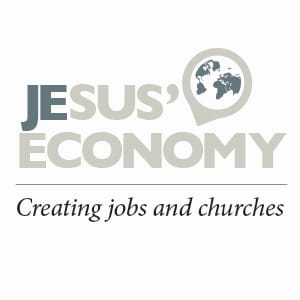What "Do Not Quench the Spirit" Means
Share

by John D. Barry, CEO of Jesus' Economy
The Holy Spirit is at work in the world. But if we fail to listen to the Spirit’s prompting, we will miss the opportunity to be part of God’s work. It is for this reason that Paul the apostle said, “Do not quench the Spirit.”
Read >1 Thessalonians 5:19–28. Reflect on 1 Thessalonians 5:19–22:
“Do not quench the Spirit. Do not despise prophecies, but test everything; hold fast what is good. Abstain from every form of evil” (ESV).
In this age of rationalism—where “what you see is what you get”—it’s easy for us to excuse the spiritual. We veto the power of the spiritual in favor of what we can see, feel, and touch. Likewise, in the time of the early church—where mystery cults emphasized spiritual experiences—Paul saw this as an issue.
At the church at Thessalonica, it seems that certain members were deemphasizing the power of the spiritual. This is likely because the spiritual experiences in Graeco-Roman religions were often performances; they were used for control and power. If a person has a special anointing over their life, or is part of an elite priesthood, it is difficult for anyone else to argue against them. Abuse of power becomes easy for the deceptive, hyper-spiritual individual.
For these reasons, churches often deemphasize the role of the Holy Spirit. We can’t see the Spirit or control its actions, so we neglect the Spirit’s importance. We also bring up the many examples of people using the name of the Holy Spirit to excuse mind games and performances—for the sake of wealth and power.
But this abuse of power does not represent the Holy Spirit. Instead, it represents an act of evil. The Holy Spirit, on the other hand, represents all that God—according to the Bible—stands for. The Holy Spirit works to heal and love; to move a community toward the goodness and holiness that is in God’s essence.
Similarly, prophecy, when used appropriately (when pure) represents a word from God himself. This word will never be for the gain of an individual or elite group. Prophecy that is of God will align with the proclamations of the Bible; it can be tested. We can see if it is truly good or evil by how it aligns or misaligns with God’s values as proclaimed by Scripture.
To “not quench the Spirit” means to allow for the Holy Spirit to do its work among the church. We desperately need the very hand of God upon our communities. We desperately need the Holy Spirit’s comforting and loving actions among us. We must not quench the Spirit among us, but instead seek the good it offers.
In what ways have you quenched the Holy Spirit’s work in your life? How is your church properly (or improperly) utilizing spiritual matters, such as prophecy?
Photo credit: ©GettyImages/SHODOgraphy
